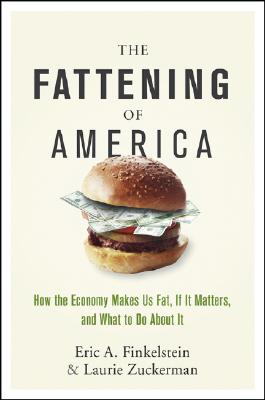The Italian Sub and Proof of Morale Hazard
Saturday, February 16th, 2008Those of you who read The Fattening of America remember my friend Mark. He's the guy who had the unprotected sex with the woman from planned parenthood. Mark was used to introduce the notion of morale hazard. This is the economic concept that says that, due to insurance, individuals may change their behavior and not engage in as much preventive care. As discussed in the book, Mark is a thrill seeker, at least when he has health insurance. In coverage lapses, which happen frequently for Mark because he changes jobs more often than my son changes underpants, Mark lays low to ensure he won't wind up with any hefty medical bills that he can't afford to pay.
I then asked the question of whether or not we think rising rates of obesity may be the direct result of generous insurance coverage for seniors (i.e., Medicare) or more indirectly to the extent that insurance speeds up the innovation period for new drugs and devices. In other words, are people not engaging in healthy behaviors because they know there will be a pill or procedure that will cure what ails them, even if they carry a few extra lbs. Even better, Medicare or private insurance will likely foot the bill.
Although this was primarily an academic discussion, I believe the answer is yes, many people will engage in less healthy behavior thanks to insurance and advances in medical technology. Now I have proof, although I'm not proud to admit it. If you read the book, you'd know that I'm an avid runner. I find few things more enjoyable than a nice run through the woods. It turns out that all of this running can't counteract the poor genes that I inherited from my parents. In spite of running 25 miles per week and generally eating a good (although admittedly not great) diet for the past ten years, my cholesterol continues to go up. At 37, my total cholesterol is 250 and my ratio of good to bad cholesterol is really poor. Heart disease runs in my family so I'm fairly concerned about it. I hate to take medications but cholesterol drugs seem to be a marvel of modern science. My understanding is that they work great and with few side effects. They are also fairly inexpensive. So, although I was hoping to cure my high cholesterol with diet and exercise, that did not pan out. In the next week or two I plan to make an appointment with my doctor and ask to be prescribed some type of cholesterol medication.
So here's where things get interesting. Yesterday I was working at home and decided to go to the local Carolina Cafe with my wife and baby for lunch. To be honest I'm not a big fan of the restaurant but it's in the neighborhood and I can walk down there. I usually get a turkey sandwich but yesterday I ordered the less healthy Italian sub. My logic was that since I'm going to be on cholesterol drugs some time soon, why not go with the Italian? The drugs will offset any negative effects of the sandwich. Regardless of whether this logic is even correct (I'm not even sure it is), the point is that I made a conscious choice to eat what I believe to be the less healthy meal (although admittedly I ordered the sub with pretzels and unsweetened tea) knowing that I've got the drugs to help right the ship. So my question is, if I'm making this type of tradeoff, how many of my tens of readers are doing it as well? Let me know.
By the way, the sub did not compare with Quizno's but it was pretty good, and actually cheaper.
